Horseradish is a plant that is used both as a vegetable and ground as a condiment. There are huge benefits of horseradish to human health. It has a strong taste, which is not liked by many people, but the nutrients in this root are indisputable. Horseradish is an inherently perennial plant of the Brassicaceae family, which includes mustard, and various types of cabbage.
The horseradish plant reaches a height of 1.5 meters and is mainly grown for its large white tapered root. In rare cases, the leaves are used for consumption and are mostly preferred to flavor jams and marmalades.
The home land of horseradish is considered Southeastern Europe. From there it gradually spread throughout Europe. Horseradish is found in the wild in the European part of Russia, the Caucasus, Siberia and the Far East. It grows well in moist places, mostly in a valley and on the banks of rivers. Relatively recently, horseradish was defined as a culture and is now widely cultivated as a food, drug, and an ornamental plant.
Composition of horseradish
Horseradish is rich in many nutrients. Horseradish roots contain mustard oil, sugar, ascorbic acid, being rich in mineral salts, potassium, sodium, sulfur, calcium, phosphorus, magnesium, chlorine, iron, copper and organic compounds.
Ascorbic acid is found in the leaves of horseradish in three times higher volumes than in the roots. Beneficial effect on the human body is contained in the volatiles in horseradish - phytoncides capable of killing disease-causing germs, which give horseradish bactericidal properties. Freshly squeezed juice, porridge prepared from the roots of horseradish and water infusions are applied as antimicrobial gargles for inflammation of the mouth and pharynx.
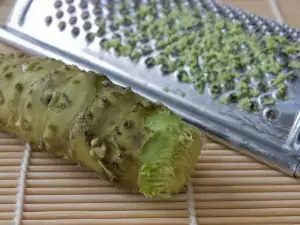
Benefits of horseradish
In the past, people put fresh horseradish leaves on abscesses for quick recovery. In edema of the cervical glands are made compresses horseradish and turnips, taken in equal quantities and grated. For headaches and poisoning, people used grated horseradish. It was considered one of the best antiscorbutic agents: boiled grated horseradish was made in a leaven of beet and gargled with 4 times a day.
The healing properties of horseradish have been known for centuries, when it was used to treat scurvy and leprosy. Horseradish is used to extract alilsinap oil contained in the leaves and roots. This oil has a powerful bacteriacidal action tha kills many kinds of germs in literally a few minutes. Horseradish roots contain lysozyme, which is a protein and an antibiotic. In a healthy person, lysozyme is contained in the saliva, in the mouth and eyes.
In diseased states, however, this substance is destroyed and horseradish helps those stocks recover. Horseradish responds well to colds and flu, it is better to take fresh root juice and add honey. Moreover, horseradish favors treating respiratory diseases and chewing a piece horseradish destroys bacteria that causes tooth decay. It kills bacteria and diseases of the gastrointestinal tract. Compresses with horseradish work great for diseases of the joints.
With high blood pressure, dizziness and chest pains- apply the following recipe: mix horseradish and vodka, then soak for 24 hours. In an enamel container, with a wooden spoon, mix 1 cup juice from carrots, turnips, beetroot and honey, with the resulting tincture, which should also be 1 cup, as well as the juice of 1 lemon. Take 1 tablespoon 3 times a day before meals, for two months. The mixture stands in the refrigerator, tightly closed. In 1/2 liters of water, put 2 tablespoons honey. 2 tablespoons vinegar and 20 cloves of garlic. The mixture is boiled on slow fire for half an hour. Soak for 1 hour and strain. Take 2 tablespoons 3 times a day before meals. This recipe helps with dizziness and chest pains.
Horseradish is used for bladder stones, rheumatism, gout, and diseases of the respiratory organs with a moist cough. This root-crop curing cleanses the body of mucus, it unclogs congestion. Enhances the digestive tract, increases appetite, helps reduce acidity and is used in diseases of the gall bladder and bowel atony.
The use of horseradish can have a negative impact on the human body. Excessive use of horseradish is not recommended because it irritates the lining of the stomach and intestines and can sometimes even cause a nervous breakdown. When cooking, the flavor of horseradish is lost and therefore it should be added to the dish at the end.
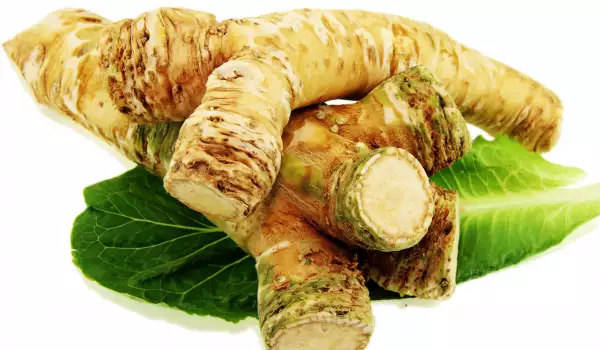
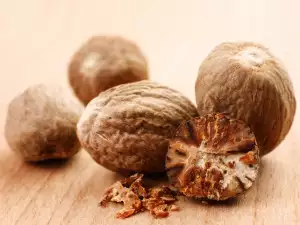
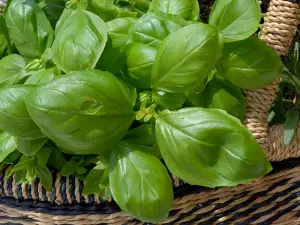
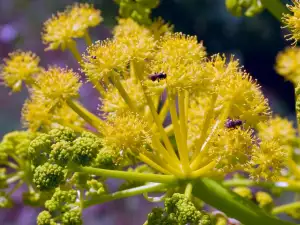
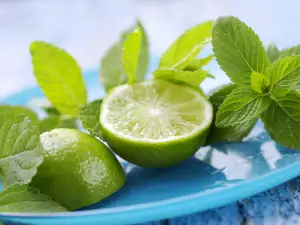
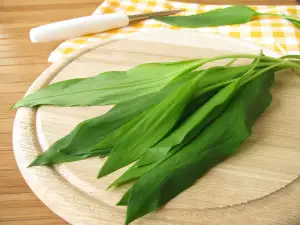
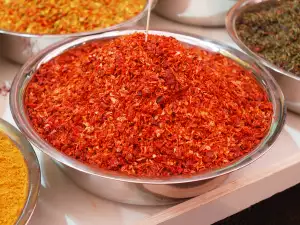
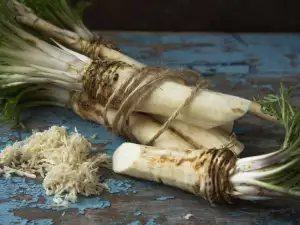
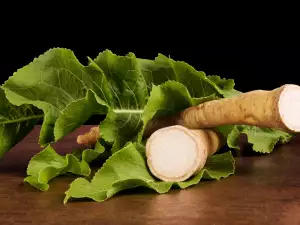

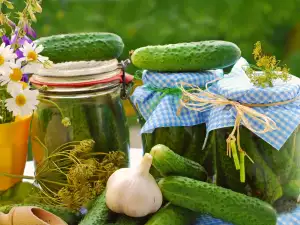

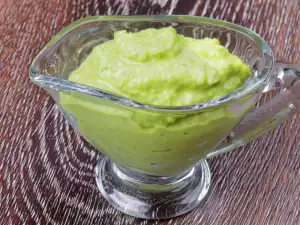
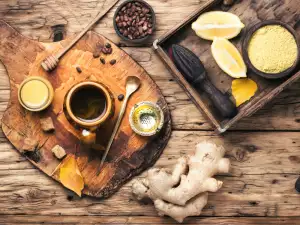





Comments